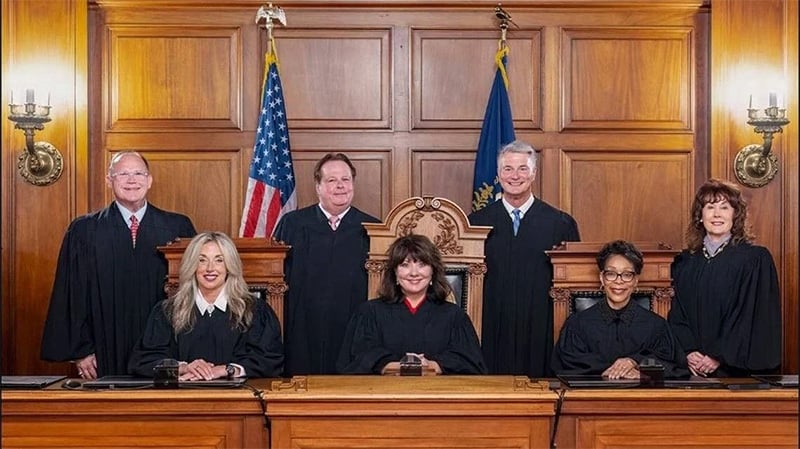By Tom Latek
Kentucky Today
The Kentucky Supreme Court on Thursday heard oral arguments on whether legislation passed by the General Assembly in 2022 as House Bill 9, which provides for public charter schools to receive tax dollars, violates Kentucky’s Constitution requiring the funding of common schools.
Matthew Kuhn, solicitor general in the Kentucky Attorney General’s office spoke in favor of the legislation.
He cited Rose vs. the Council for Better Education, the 1989 ruling by the Supreme Court, which determined the state’s funding method was not equitable between richer and poorer district, and led to passage of the Kentucky Education Reform Act.

“This Court held that it is the sole obligation of the General Assembly to provide for an efficient system of common schools,” Kuhn told the Court. “Kentucky’s charter school law, which we are discussing today, is Rose’s greatest champion. The General Assembly approved charter schools to close achievement gaps for low-performing public school students. Rose in no way prohibits the General Assembly from adopting innovative educational methods to ensure that all Kentucky students live up to their potential.”
He also noted that Rose allows for diverse approaches to education to match the diversity of Kentucky children.
“Indeed, our common school system in the Commonwealth is already quite diverse, with the robust system of magnet schools, that includes the likes of Dupont Manual in Louisville and SCAPA in Lexington.”
Byron Leet, representing the Council for Better Education, who brought the suit along with the Kentucky Board of Education, said he wants the Justices to uphold the Franklin Circuit Court ruling against HB 9.
He described the legislation as “the latest attempt by the General Assembly to redirect public school money, public funds, to schools operating outside the common school system, without the approval of Kentucky’s voters, as required by the Constitution.”
Leet stated, “The test for common schools is whether they are controlled by elected officials within a school district. That’s been said over and over again.”
He pointed out that charter schools are governed by independent boards of directors, “which might even outsource the school to a private education service provider.”
The case was heard at Centre College in Danville. There is no word on when the High Court will hand down its ruling on the case.

















